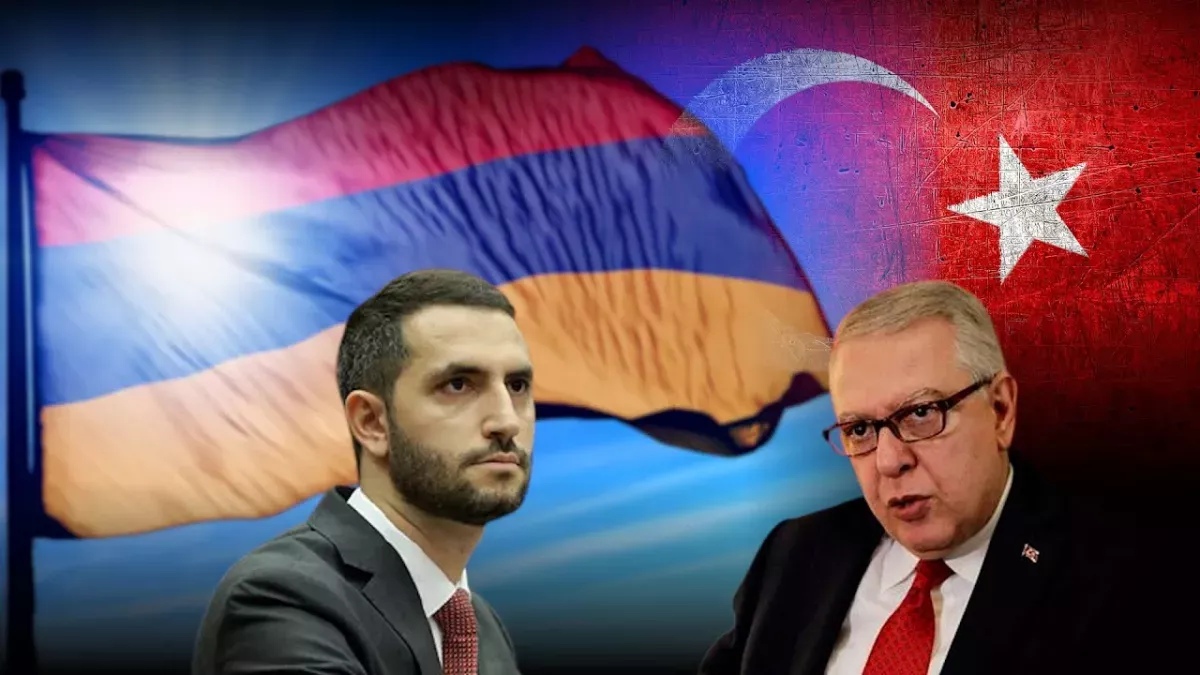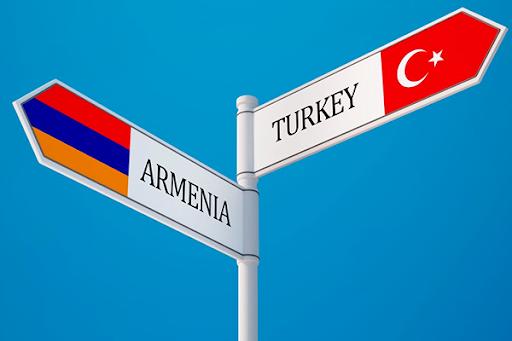Russia and the Armenian-Turkish negotiation track A test of relevance
The sixth round of talks between Türkiye’s and Armenia’s special representatives for the normalisation of relations, Serdar Kılıç and Ruben Rubinyan, followed almost immediately after the historic Washington meeting of the leaders of Azerbaijan, Armenia, and the United States. During these talks, the parties reaffirmed the issues they had worked on and reached agreement on in previous meetings, exchanged views on the implementation of the border-crossing agreement reached on July 1, 2022, and agreed to accelerate this process. Moscow did not overlook this development.
In its usual manner, Russia once again reminded Türkiye and Armenia—and, of course, the West—of its role as the main initiator of Armenian-Turkish reconciliation.
“The Russian side consistently advocates the swift reconciliation of the two neighbouring states. I think you remember how many times our country, and personally Foreign Minister Sergey Lavrov, have participated in international meetings dedicated to this topic,” said Russian Foreign Ministry spokeswoman Maria Zakharova at a briefing on September 18, not failing to note that the first round of Armenian-Turkish talks took place in Moscow.

This is indeed a fact. In January 2022, at the Reception House of the Russian Foreign Ministry, Serdar Kılıç and Ruben Rubinyan held closed-door talks lasting approximately one and a half hours. Following the meeting, it was announced that the process of normalising bilateral relations had begun. After this meeting, Russian Foreign Minister Sergey Lavrov, at a press conference reviewing the activities of Russian diplomacy in 2021, emphasised Moscow’s particular significance in establishing a direct dialogue between Ankara and Yerevan.
Today, as Russia’s positions in the region have noticeably weakened, Moscow, by constantly reminding others of its past efforts, is trying to reclaim its status as a peacemaker and restore its reputation in the South Caucasus, aiming to act as a moderator in the Ankara–Yerevan negotiation track.
However, we believe that for this, Russia needs to reconsider several of its approaches. First, based on statements from official Kremlin representatives, it appears that Moscow treats the normalisation of relations between Yerevan and Baku and that between Yerevan and Ankara as two separate, unconnected processes. This is unacceptable, since Türkiye, even during Armenia’s occupation of Azerbaijani territories, has consistently maintained the position that the restoration of diplomatic relations with Yerevan is only possible on the condition of normalising Armenian–Azerbaijani relations.
This position was reaffirmed relatively recently by Türkiye’s Foreign Minister Hakan Fidan in Italy at a conference organised by the Rome Institute of International Affairs. In particular, he stated that Ankara would immediately begin the process of normalising relations with Armenia as soon as a final signature is placed on a peace agreement between Baku and Yerevan. In other words, Türkiye emphasises at all levels that its steps on the Armenian track are coordinated with Baku. Accordingly, both Moscow and Yerevan must take Ankara’s position into account.
Thus, if Russia seeks to play the role of moderator in Armenian–Turkish reconciliation, it should take the positions of the parties seriously.

Second, Moscow constantly stresses its commitment to the “3+3” format, but apparently only through the prism of its own interests and with the intent to “show the West up” against Yerevan’s European aspirations. This conclusion is suggested by statements from the same Maria Zakharova.
“Moscow is ready to continue supporting the efforts of its Armenian and Turkish partners in this direction, including within the framework of the regional cooperation platform ‘3+3’. I would like to remind you that it includes Azerbaijan, Armenia, Georgia, plus Russia, Iran, and Türkiye. We hope that, in developing agreements between Ankara and Yerevan, the realities on the ground and the long-term interests of South Caucasus neighbours will be duly taken into account. For this, it is important to prevent destructive interference from extra-regional actors in an already complex negotiation process,” she stated.
We believe that the Russian side should change its rhetoric, since neither Türkiye, Armenia, nor Azerbaijan has any intention of taking steps against neighbouring countries. This is confirmed, among other things, by the agreements on the Zangezur corridor reached at the aforementioned Washington meeting, which take into account the interests of all regional states. Incidentally, even the Iranian leadership has acknowledged this, which is particularly notable given the longstanding tension between the Islamic Republic of Iran and the United States.
Summing up the facts outlined above, it can be concluded that Moscow will continue to exert its efforts to ensure that the next round of Armenian–Turkish negotiations takes place on Russian soil, appealing primarily to its friendly relations with Ankara. However, it should be emphasised once again that, regardless of the venue for talks between Ankara and Yerevan, their successful outcome will ultimately depend on the Armenian–Azerbaijani settlement.








